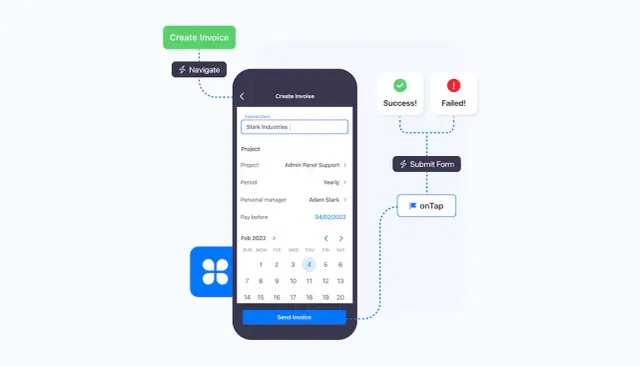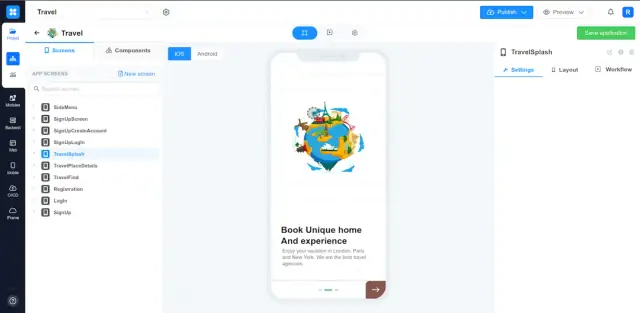Citizen Developers: The Secret Weapon in Digital Transformation
Explore the rise of citizen developers, their importance in digital transformation, and how organizations can leverage no-code platforms like AppMaster to empower them for better results.

What Are Citizen Developers?
Citizen developers are non-technical individuals who have a keen understanding of their company's business processes and requirements. They leverage no-code and low-code development platforms to create web, mobile, and backend applications addressing specific business needs. These platforms allow them to build applications without significant programming expertise. The rise of citizen developers is closely tied to the rapid advancement of technology and the digital transformation happening across all industries.
As companies transition from traditional manual methods to digital and automated ones, they often face an increasing demand for software applications. However, the process of creating and maintaining these applications is usually time-consuming and costly. Citizen developers fill this gap by quickly producing functional software applications that improve business workflow and efficiency. Their role is instrumental in the success of digital transformation within their organizations.
The Role of Citizen Developers in Digital Transformation
Citizen developers are uniquely positioned to have a profound impact on the digital transformation of companies. Their intimate understanding of company processes, combined with their ability to create software applications using no-code platforms, enables them to tackle a range of roles and tasks:
- Speedy Application Development: Citizen developers can rapidly produce applications using no-code and low-code platforms. These tools reduce the time it takes to go from ideation to deployment, allowing companies to quickly address critical needs or automate tedious work tasks.
- Reducing IT Backlogs: As demand for digital solutions increases, IT departments are often overwhelmed with project backlogs. Citizen developers can help reduce this backlog by independently addressing less complex projects and freeing up the IT team to focus on more resource-intensive tasks.
- Empowering Business Users: No longer dependent on the IT department for software solutions, citizen developers can create applications tailored to specific departmental needs. This autonomy allows for better customization and increased ownership of solutions by the end-users.
- Innovation and Experimentation: With easy access to development tools and a responsibility to improve internal processes, citizen developers are in a prime position to explore new concepts and solutions. They can experiment with applications that utilize emerging technologies, such as artificial intelligence and the Internet of Things.
- Enhanced Collaboration: The role of citizen developers bridges the gap between the technical and non-technical workforce. As both application creators and users, citizen developers can develop a shared understanding of business needs and technology capabilities, facilitating better communication and collaboration.
How No-Code Platforms are Empowering Citizen Developers
No-code platforms are designed to enable users without programming expertise to create fully functional applications. By providing user-friendly, drag-and-drop tools, these platforms empower citizen developers to bring their innovative ideas to life. The following are some key features of no-code platforms that enhance the abilities of citizen developers:
Visual Application Builders
No-code platforms often include intuitive visual builders for creating application interfaces. Citizen developers can design web and mobile app user interfaces by simply dragging and dropping components onto the screen.

Pre-built Components
To expedite the development process, no-code platforms provide a variety of pre-built components for handling common application functionalities, such as forms, tasks, and notifications. Citizen developers can quickly customize these components to meet their specific requirements.
Data Model Design
No-code platforms typically offer visual data model designing capabilities. This feature allows citizen developers to model, store, and manage their application's data without any knowledge of database management systems or query languages.
Business Process Modeling
Many no-code platforms include tools for designing and managing business processes. Citizen developers can create custom workflows and automate tasks by visually defining the rules and logic that govern the application's behavior.
APIs and Integration
Integrating with other systems and services is crucial for most business applications. No-code platforms often offer pre-built connectors or REST API support, enabling citizen developers to integrate their apps with external services like CRM systems, payment gateways, and social media platforms.
By leveraging the capabilities of no-code platforms, citizen developers can focus on solving business problems while the platform takes care of the technical aspects of application creation. In essence, no-code platforms are democratizing application development by placing powerful development tools in the hands of everyday business users.
The AppMaster.io Difference: Empowering Citizen Developers with End-to-End Solutions
AppMaster.io is a no-code platform that stands out in its ability to empower citizen developers with end-to-end solutions for creating web, mobile, and backend applications with ease. Founded in 2020, AppMaster has quickly earned a reputation as a high performer among no-code development platforms, having been featured by G2 in various categories such as Rapid Application Development (RAD), API Management, and Drag & Drop App Builders.
The AppMaster.io platform's major advantage for citizen developers lies in its ability to eliminate technical debt by regenerating applications from scratch whenever requirements are modified. This unique approach ensures that even a single citizen developer can create a comprehensive, scalable software solution complete with a server backend, website, customer portal, and native mobile applications.

Key features of the AppMaster.io platform are designed for ease of use by citizen developers, such as:
- Visual Database Schema Design: Create data models for backend applications without needing expertise in database management.
- Business Process Modeling: Visually design the business logic of your applications with the drag-and-drop Business Process (BP) Designer.
- REST API and WSS Endpoints: Generate secure and reliable server endpoints for your applications automatically without needing to write code.
- Drag-and-Drop UI Design: Construct and customize responsive user interfaces for web and mobile applications with just a few clicks.
Flexible subscription options are available to cater to a variety of business needs, including a free Learn & Explore plan for new users who want to test out the platform. Additionally, AppMaster.io offers multiple pricing plans with a range of resources, from startup-friendly packages to enterprise-level solutions.
Growing the Citizen Developer Community: Benefits and Challenges
Cultivating a community of citizen developers within an organization comes with numerous benefits:
- Accelerated digital transformation: By empowering non-technical employees to create their own software solutions, organizations can speed up the process of innovation and digital transformation.
- Increased workflow efficiency: Citizen developers can develop intuitive applications tailored to specific business needs, leading to improved productivity and reduced bottlenecks.
- Fostering innovation: Diversifying development capabilities can help democratize the creation process and encourage a culture of innovation across all levels of the organization.
- Reduced development cost and time: By enabling employees to build their own software applications, organizations lessen the dependency on external development teams, saving valuable time and resources.
Despite the numerous benefits, several challenges are associated with fostering a thriving citizen developer community:
- Role definition: Clearly defining the roles and responsibilities of citizen developers within the organization is essential for success.
- Relationship with the IT department: Striking a balance between the IT department and citizen developers is crucial to ensure collaboration and sustainable development practices.
- Training and support: Organizations must provide adequate training, resources, and ongoing support to citizen developers to continually improve their skills and performance.
- Security and compliance: Ensuring proper implementation of security standards and regulatory compliance is vital when employing a multitude of different developers.
Best Practices for Integrating Citizen Developers into Your Business
Successfully integrating citizen developers into your business requires a thoughtful approach that takes into account their unique needs and potential challenges. Here are five best practices to consider:
- Define clear roles: Establish a well-defined role for your citizen developers within the organization that clearly outlines their responsibilities, including the types of applications they are allowed to create and deploy.
- Invest in training and support: Provide ongoing training and support to citizen developers, ensuring they are familiar with the tools, platforms, and technologies necessary for creating applications that meet your organization's standards.
- Use no-code platforms: Utilize no-code platforms like AppMaster.io that have been specifically designed to empower citizen developers with the resources and features they need to create applications without relying on extensive coding skills.
- Encourage collaboration with IT: Foster an environment of collaboration between citizen developers and your organization's IT department by establishing processes for sharing feedback, identifying potential risks, and jointly maintaining applications for optimal performance.
- Enforce security and compliance policies: Implement clear guidelines and policies regarding security and regulatory compliance to ensure citizen developers adhere to industry standards while creating applications.
By adopting these best practices, your organization can unleash the true potential of citizen developers and leverage their skills to drive digital transformation and create a more inclusive culture of innovation. Platforms like AppMaster.io play a crucial role in empowering citizen developers, providing them with the tools and resources they need to create applications that benefit the entire organization.
FAQ
A citizen developer is a non-technical individual who creates business applications using no-code and low-code development platforms without significant programming expertise.
Citizen developers expedite digital transformation by creating software applications rapidly, addressing project backlogs, and providing intuitive solutions for specific business needs.
No-code platforms like AppMaster provide easy-to-use, drag-and-drop tools that empower citizen developers to create web, mobile, and backend applications without extensive programming skills.
The AppMaster.io platform eliminates technical debt by regenerating applications from scratch whenever requirements are modified, enabling citizen developers to create scalable, comprehensive software solutions.
A robust citizen developer community can enhance digital transformation, improve workflow efficiency, foster innovation, and reduce development cost and time.
Challenges include setting clear roles and responsibilities, balancing the relationship between IT departments and citizen developers, ensuring adequate training, and maintaining security and compliance standards.
Businesses can integrate citizen developers by defining their roles, providing relevant training, utilizing no-code platforms like AppMaster, encouraging collaboration with the IT department, and establishing clear security and compliance policies.
Using no-code platforms like AppMaster, citizen developers can create complex applications by leveraging the platform's advanced features such as visual database schema design, business process modeling, and REST API and WSS endpoints.





